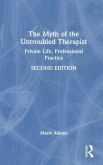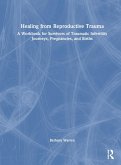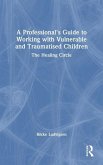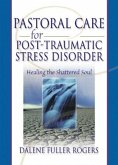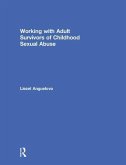The effects of extreme trauma can have devastating emotional, relational, physical, and legal effects. This book offers hope, providing survivors, family and friends with a roadmap for managing obstacles to recovery.
Hinweis: Dieser Artikel kann nur an eine deutsche Lieferadresse ausgeliefert werden.
Hinweis: Dieser Artikel kann nur an eine deutsche Lieferadresse ausgeliefert werden.
'This self-help gem is a beacon of hope for those navigating the turbulent waters of trauma and PTSD. In a world where understanding often falls short, Michael Scott's book stands out as a guiding light, written in a conversational and validating tone that extends a compassionate hand to readers. It offers profound insights into how past traumatic experiences come to feel so central that they dominate every aspect of daily living; and how survivors can come to terms with their past by giving their experiences the weight they deserve, rather than demand. Accessible and empowering, it seamlessly blends state-of-the-art clinical science, survivor stories, and a personalised roadmap to recovery rooted in cognitive-behavioural therapy. It equips survivors with the tools to burst free from the bubble they find themselves in, providing a comprehensive guide for reclaiming one's life. A true companion for the journey toward healing, it will benefit not just those struggling to break free from PTSD, but also their partners and families.'
Sharif El-Leithy, D.Clin.Psy, Consultant Clinical Psychologist, Traumatic Stress Service, London.
'In this substantially revised and updated text Michael Scott has once again demonstrated his brilliance, compassion, and, decades-long wealth of evidence based clinical practice in helping victims of trauma. He guides suffers of trauma into making sense of the wide-ranging symptoms at the heart of their distress but, importantly, equips them with strategies for dealing with the complex and puzzling symptoms their trauma has left guiding them to regain a sense of control and find a way out of the maze of distress they have been lost in for so long. Moving On After Trauma is an absolute must for those who have suffered trauma, their families and loved ones.'
Sundeep Sembi, Clin.Psy.D, Consultant Clinical Neuropsychologist, Psychology Chambers Ltd.
'Dr Scott has succeeded in producing a work of value to sufferers, those around them, and clinicians. The tag of "terrified surprise" is one which will resound with many sufferers and be helpful. Running through the book are composite representations of twenty sufferers which provide images and accounts, some of which are likely to be recognised by any sufferer, and to inform relatives and carers. It is essentially a self-help guide, and also contains the author's opinion on treatments offered and provided, alongside explanations of the cause, nature, and management of post-traumatic experiences. There is a sequence of self-help material and descriptions of treatment approaches for sufferers which is accessible and is linked to the case histories, as well as specific information for clinicians.'
L Stephen O'Brien, FRCPsych, Consultant Psychiatrist.
Sharif El-Leithy, D.Clin.Psy, Consultant Clinical Psychologist, Traumatic Stress Service, London.
'In this substantially revised and updated text Michael Scott has once again demonstrated his brilliance, compassion, and, decades-long wealth of evidence based clinical practice in helping victims of trauma. He guides suffers of trauma into making sense of the wide-ranging symptoms at the heart of their distress but, importantly, equips them with strategies for dealing with the complex and puzzling symptoms their trauma has left guiding them to regain a sense of control and find a way out of the maze of distress they have been lost in for so long. Moving On After Trauma is an absolute must for those who have suffered trauma, their families and loved ones.'
Sundeep Sembi, Clin.Psy.D, Consultant Clinical Neuropsychologist, Psychology Chambers Ltd.
'Dr Scott has succeeded in producing a work of value to sufferers, those around them, and clinicians. The tag of "terrified surprise" is one which will resound with many sufferers and be helpful. Running through the book are composite representations of twenty sufferers which provide images and accounts, some of which are likely to be recognised by any sufferer, and to inform relatives and carers. It is essentially a self-help guide, and also contains the author's opinion on treatments offered and provided, alongside explanations of the cause, nature, and management of post-traumatic experiences. There is a sequence of self-help material and descriptions of treatment approaches for sufferers which is accessible and is linked to the case histories, as well as specific information for clinicians.'
L Stephen O'Brien, FRCPsych, Consultant Psychiatrist.


